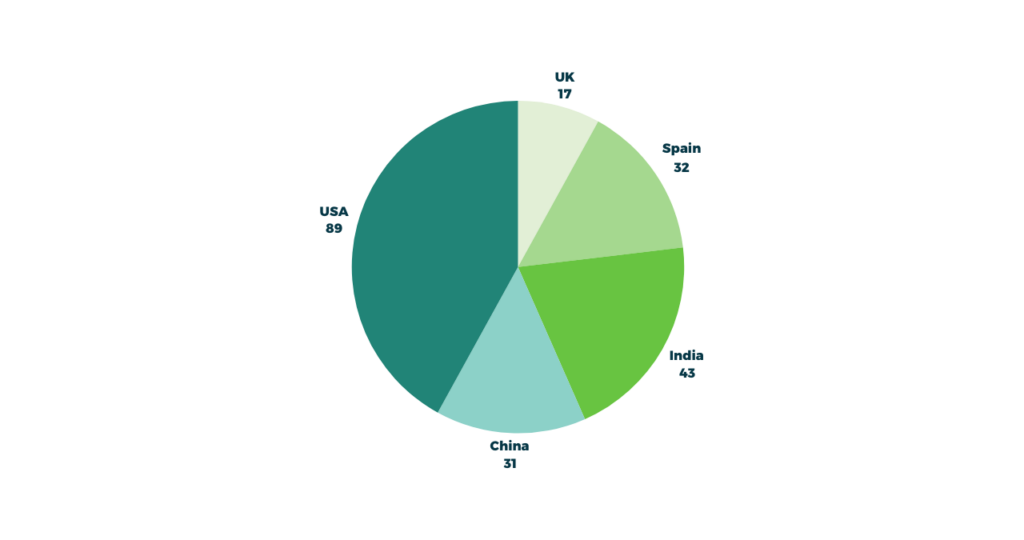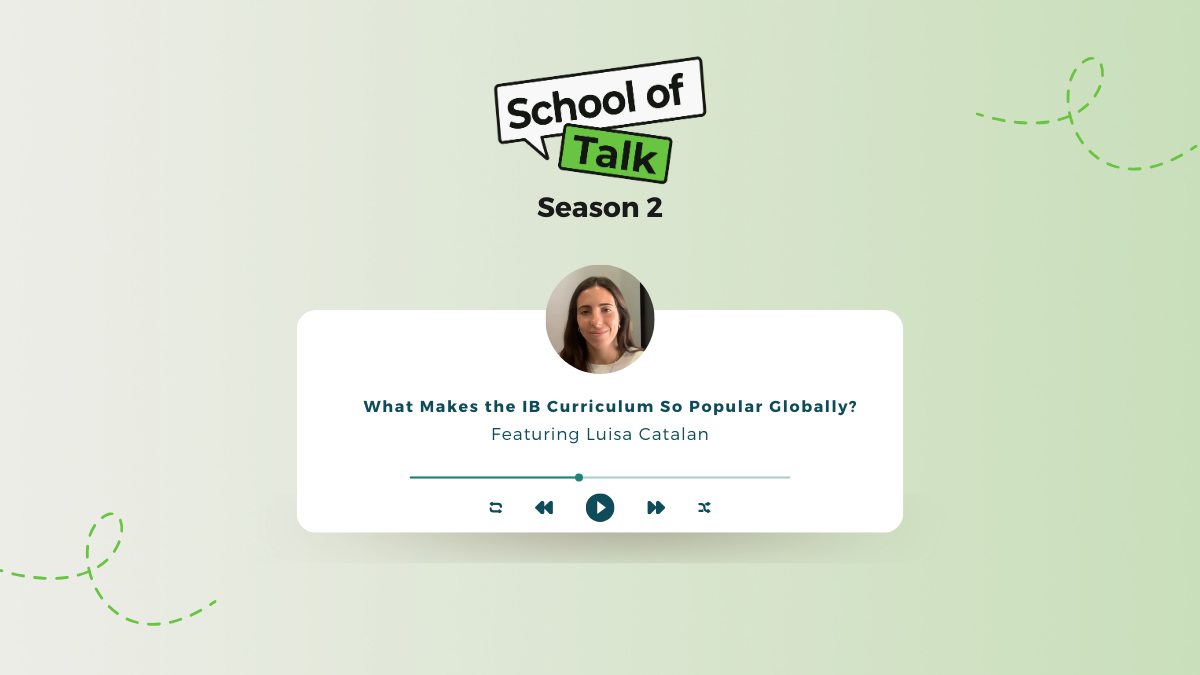On this episode of our educator podcast, School of Talk, our host and education expert Ryan Stevenson, sits down with Luisa Catalan, an IB (International Baccalaureate) Development and Recognition Manager for most countries in Latin America.
With more than two years of experience in IB (International Baccalaureate) and her own background as an IB alumni, Luisa provides unique insights as to why the IB’s holistic approach to education is resonating globally.
Today we ask, Why is the IB so popular?
The Rise and Rise of IB Programmes, By the Numbers
In recent years, the International Baccalaureate (IB) programmes experienced remarkable growth.
Between 2018 and 2022, the number of IB programmes offered worldwide surged by an impressive 34.2%.
As of February 2024, this growth trajectory continued, with over 8,000 programmes available across more than 5,700 schools spanning 160 countries.
A closer look at the data reveals that in 2022 alone, 431 new programmes were authorized, marking a significant milestone. The top five countries contributing to this expansion were the USA, UK, Spain, India, and China, with varying numbers of new programmes authorized.

The IB also offers a comprehensive range of educational programmes catering to over 1.95 million students aged 3 to 19 worldwide:
- Primary Years Programme (PYP): Started in 1997, now offered by 2,264 IB World Schools, up from 2,174 in the previous year.
- Middle Years Programme (MYP): Started in 1994, now offered by 1,854 IB World Schools, up from 1,813.
- Diploma Programme (DP): Started in 1968, now offered by 3,672 IB World Schools, up from 3,590.
- Career-related Programme (CP): Started in 2010, now offered by 359 IB World Schools, up from 313.
These growth trends highlight the popularity and growth of the IB programme, setting the stage for further insights into the impact and experiences of students and educators within the IB community.
Holistic Approach to Education
“The IB programme’s popularity can be attributed to its holistic approach to education, which spans from early childhood to adolescence,” notes Luisa.
“It’s a holistic educational system that goes all the way from 3 years old, all the way up to 19 years old. It can change education to make the world a better place to be.”
The programme’s mission to create a more peaceful and sustainable world resonates with students and educators amidst global uncertainty.
Additionally, its international credentials and standardized quality standards facilitate student mobility and prepare them for global careers.
“Anywhere in the world, you can have these programs that you will work kind of similarly… But it is true that those quality standards are going to be the same no matter where you study your IB.”
International Recognition and Quality Standards
“The IB curriculum stands out for its holistic approach to student development, emphasizing critical thinking, creativity, and lifelong learning skills,” explains Luisa.
“Students need to think a lot. So most of the programs and the units and everything start with questions… And this process of learning gives them a chance to be critical thinkers, to be creative also in the way that they acquire knowledge.”
This inquiry-based learning methodology not only encourages students to think critically but also contributes to higher university enrollment rates and graduation percentages for IB students.
Teacher Training and Professional Development
Effective teacher training is crucial for delivering the IB curriculum successfully. The IB provides professional development workshops and resources for teachers, ensuring they are well-equipped to implement the inquiry-based learning methodology.
She elaborates: “There’s no way a school can be authorized without going through these professional development processes.”
IBEN (IB Educators Network)
The IB Educators Network (IBEN) offers a global platform for IB teachers to collaborate, share resources, and participate in IB-related events.
This network fosters professional growth and facilitates teacher mobility across IB schools worldwide.
“There’s many roles that you can take in this network, and this is a beautiful way also for teachers to improve and even to travel to get to see other educational projects and schools in other parts of the world.”
Personal Growth and Rewarding Journey
While the IB curriculum can be demanding for students, the rewards of completing it are immense. Luisa reflects on her own experience as an IB student, acknowledging the challenges but emphasizing the personal growth and problem-solving skills gained.
“When you’re an IB student, sometimes it’s not easy… But I think while you’re in the process, you get to think a lot. You get to change a lot yourself. And once you finish it, it’s very rewarding.”
Key Takeaways:
- The IB curriculum offers a holistic approach to education, focusing on developing critical thinking, creativity, and lifelong learning skills in students.
- International Recognition: The IB curriculum is globally recognized for its quality standards, enabling student mobility and preparing them for global careers.
- Effective teacher training and ongoing professional development are essential for successful implementation of the IB curriculum.
- The IBEN provides a global platform for collaboration and resource-sharing among IB educators, fostering professional growth and networking opportunities.
- While demanding, completing the IB curriculum fosters personal growth, problem-solving skills, and resilience in students, leading to a rewarding journey of education.
Where to listen to this episode of School of Talk
Whether you are a teacher, a school administrator, or a parent, this episode shed light on the IB’s mission to create a better and more peaceful world through education.
Episode Highlights:
- What is the IB?
- Why is the IB so popular?
- The IB’s global growth
- The IB teacher training and professional development
- Upscaling current staff to align with the IB curriculum
- For teachers interested in the IB curriculum
- The IB experience as a student



